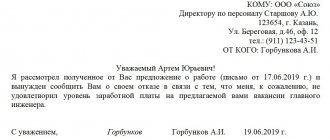According to Part 1 of Article 39 of the Code of Civil Procedure of the Russian Federation, the plaintiff and defendant can end the case with an amicable agreement. Article 220 of the Code of Civil Procedure establishes that if the court approves a settlement agreement concluded by the parties, the court will terminate the proceedings in the case. In accordance with Article 221 of the Code of Civil Procedure of the Russian Federation, the court terminates the proceedings upon approval of the settlement agreement by issuing a ruling, which states that a repeated appeal to the court in a dispute between the same parties, about the same subject and on the same grounds is not allowed. The determination to terminate proceedings in the case specifies the terms of the settlement agreement approved by the court (Part 3 of Article 173 of the Code of Civil Procedure). Part 1 of Article 326.1 of the Code of Civil Procedure says that the parties can enter into a settlement agreement in the appellate court. The parties submit written applications to the court for approval of the settlement agreement, which set out the terms and conditions concluded by the parties to the settlement agreement.
If the parties have reached a settlement agreement during the consideration of the appeal, the terms of the settlement agreement concluded by the parties are entered into the minutes of the court session and signed by the parties to the settlement agreement (plaintiff and defendant). By approving the settlement agreement, the appellate court cancels the court decision and terminates the proceedings (Part 2 of Article 326.1 of the Code of Civil Procedure). The ruling on approval of the settlement agreement is subject to enforcement. Article 409 of the Code of Civil Procedure states that decisions of foreign courts, including decisions on the approval of settlement agreements, are recognized and executed in the Russian Federation if this is provided for by an international treaty of the Russian Federation. If foreign decisions on the approval of settlement agreements are subject to enforcement in Russia when this is established by an international treaty, this means that decisions of Russian courts on the approval of settlement agreements are also subject to enforcement in the Russian Federation. Part 2 of Article 439 of the Code of Civil Procedure states that when concluding a settlement agreement between the claimant and the debtor, the rules provided for in Article 173 of the Code of Civil Procedure are applied.
"Yellow card" for a court decision
This raises a question that requires a theoretical solution. If a settlement agreement approved by the court of appeal entails the cancellation of the decision of the court of first instance with the termination of proceedings in the case, does this mean that the court’s approval of the settlement agreement in proceedings on the execution of a court decision and decisions of other bodies entails the cancellation of the decision court of first instance and termination of proceedings?
…by approving the settlement agreement, the appellate court cancels the court decision and terminates the proceedings.…
Article 439 of the Code of Civil Procedure states that when concluding a settlement agreement between the debtor and the claimant, the rules of Article 173 of the Code of Civil Procedure of the Russian Federation must be applied, part 3 of which prescribes the termination of proceedings in the case when the court approves the settlement agreement. From here, it seems, we can conclude that the court’s approval of a settlement agreement between the debtor and the claimant should be the basis for the simultaneous termination of the proceedings and the cancellation of the court decision that has entered into legal force. A court ruling on approval of a settlement agreement in proceedings on the execution of a judicial act and decisions of other bodies does not cancel the court decision made in the claim proceedings.
The identity of peace and war
Part 1 of Article 439 of the Code of Civil Procedure establishes that enforcement proceedings are terminated by the court in cases provided for by Federal Law No. 229-FZ of October 2, 2007 “On Enforcement Proceedings”. In accordance with Part 2 of Article 43 of the Law on Enforcement Proceedings, enforcement proceedings are terminated by the bailiff if the court approves a settlement agreement between the claimant and the debtor. Law No. 229-FZ states that the parties (debtor and claimant) have the right to conclude a settlement agreement in court before the end of enforcement proceedings (Part 1, Article 50). The appeal ruling of the Irkutsk Regional Court dated October 29, 2013 in case No. 33-8847/13 overturned the city court ruling approving a settlement agreement between Gazprombank Mortgage Funding 3S.A., Societe anonyme (Gazprom Mortgage Funding ZS.A., joint stock company) and a citizen - debtor. With this ruling, the city court not only approved a settlement agreement between the creditor and the debtor, but also terminated the proceedings between the plaintiff bank and the defendant citizen for the collection of the loan amount, interest, penalties and foreclosure on the pledged property.
By a court decision, the bank's demands were satisfied, and then, by a ruling of the same court, the proceedings in the case were terminated due to the approval of the settlement agreement concluded by the parties. In a private complaint, a representative of the joint-stock bank asked to cancel the court's ruling on approval of the settlement agreement regarding the termination of proceedings in the case. In the private complaint, it was stated that the civil case regarding the collection of sums of money and the foreclosure of the collateral was considered on its merits, so there is no possibility of terminating the proceedings. Thus, the submitter of the private complaint proceeded from the fact that the ruling on approval of a settlement agreement between the debtor and the collector cannot terminate the civil proceedings between the plaintiff (collector) and the debtor (defendant), within the framework of which a decision was made to resolve the dispute on the merits of the stated claims . And, therefore, a court decision cannot “actually” be canceled by a court ruling approving a settlement agreement between the debtor and the claimant.
...the approval of a settlement agreement between the debtor and the claimant does not entail the termination of the proceedings with the “actual” cancellation of the court decision that has entered into legal force...
The approval of a settlement agreement between the debtor and the claimant does not entail the termination of the proceedings with the “actual” cancellation of the court decision that has entered into legal force. In this part, we consider the appeal ruling to be correct, that is, consistent with the law. But a settlement agreement between the debtor and the claimant can be concluded after the end of the enforcement proceedings, and in the event that the enforcement proceedings were not initiated at all, and the claimant and the debtor began negotiations on the procedure and methods for executing the court decision, worked out the terms of the settlement agreement and turned to to the court with an application for its approval. In order to prove this thesis, it is necessary to consider the relationship between the settlement agreement, which is approved by the court in the framework of enforcement proceedings, and the settlement agreement, which is approved by the court in proceedings on the execution of a judicial act. The consideration of the issue is resolved through the task of distinguishing between enforcement proceedings and judicial proceedings for the execution of a court decision.
Resolution of the Supreme Court
The fact that such a task really exists and is relevant is evidenced by the Resolution of the Presidium of the Supreme Arbitration Court of the Russian Federation dated April 6, 2000 No. 8232/99. It follows from the resolution that a court decision was made in favor of the business company to recover funds from a commercial bank. The writs of execution issued by the court with the collection order were transferred by the recoverer (business company) to the Primorsky Cash Settlement Center in Tolyatti. Then the business company (claimant) applied to the court to approve the settlement agreement and terminate the enforcement proceedings. By the ruling of the arbitration court, the proceedings on the application for approval of the settlement agreement were terminated, since enforcement proceedings were not initiated, and the arbitration court does not have the right to approve the settlement agreement. Deciding on the cancellation of judicial acts taken on the application for approval of the settlement agreement, the Presidium of the Supreme Arbitration Court of the Russian Federation indicated that the execution of decisions of arbitration courts is possible both in the manner provided for in Articles 5 and 6 of the Federal Law of July 21, 1997 No. 119-FZ, and in Article 9 of the said law. “According to Article 121 of the Arbitration Procedure Code of the Russian Federation, the settlement agreement is approved by the arbitration court, about which a ruling is issued, which indicates the termination of the proceedings,” says the resolution of the Presidium of the Supreme Arbitration Court of the Russian Federation, “approval of the settlement agreement, the proceedings in the case are terminated at any stage of the arbitration process. Since the writs of execution were sent by the claimant to the bank for execution, and the execution of judicial acts is a stage of the arbitration process, the arbitration court had no obstacles to considering the application for approval of the settlement agreement.”
In the cited resolution, the Presidium of the Supreme Arbitration Court of the Russian Federation says that a settlement agreement can be concluded at the stage of execution of a judicial act, despite the fact that enforcement proceedings were not initiated by the bailiff. At the same time, the Presidium of the Supreme Arbitration Court of the Russian Federation considers the judicial proceedings for the execution of a judicial act to be enforcement proceedings, and it considers as such the execution of a court decision not by a bailiff, but by another enforcement agent (bank, cash settlement center). There is no doubt that the court can approve a settlement agreement between the claimant and the debtor, even if the writ of execution was not transferred to the enforcement department of the FSSP. But it is incorrect to believe that the said settlement agreement entails the termination of the proceedings in the case; it is also difficult to agree that the execution of a judicial act decided by the arbitration court is a “stage of the arbitration process.”
Additional settlement agreement outside the framework of enforcement proceedings: is it possible?
Dear Colleagues,
A question arose to which I did not receive a clear answer.
Model situation : In the arbitration court of first instance, the parties entered into a settlement agreement in which they agreed on the dates and amount of payment. The court's ruling was not appealed. The payment deadline under the settlement agreement has arrived, but the defendant does not pay, delays negotiations, promising to pay soon, so the parties want to approve a new settlement agreement with different terms and amounts. We do not consider the initiation of enforcement proceedings and the conclusion of a settlement agreement (business reasons).
Question: will the same court approve such an “additional settlement agreement”?
reference Information:
The prevailing position of the courts is as follows (for example, Resolution of the Federal Antimonopoly Service of the Moscow District dated October 5, 2011 in case No. A40-169442/09)
“The settlement agreement, by its legal nature, is a civil transaction. A special feature of such a transaction is its mandatory approval by the court. Based on the results of consideration of the issue of approval of the settlement agreement, the arbitration court issues a ruling...
After approval of the settlement agreement by the arbitration court, the legal nature of this agreement also changes, it acquires the force of a judicial act...
From the provisions of Art. 179 - 181 and art. 188 of the Arbitration Procedure Code of the Russian Federation in their systemic interpretation, it follows that the arbitration court does not have the right to cancel or change the judicial act adopted by it, except for cases expressly provided for by procedural law.
Even if there is the will of the parties, the procedural law does not allow the possibility of canceling or changing the judicial act approving the settlement agreement concluded by the parties except in the manner of appeal, cassation, supervisory proceedings or due to newly discovered circumstances.
The law also does not provide for the possibility of making changes or additions to a settlement agreement approved by the court, nor does it provide for the possibility of concluding additional settlement agreements, since if it is approved by the court, judicial acts that directly contradict each other will be adopted in the case.”
However, a different position appeared, set out in the Resolution of the Federal Antimonopoly Service of the Moscow District dated December 13, 2012 in case No. A40-11629/10:
“According to Part 1 of Art. 139 of the Arbitration Procedure Code of the Russian Federation, a settlement agreement can be concluded by the parties at any stage of the arbitration process and during the execution of a judicial act. According to Part 4 of Art. 139 of the Arbitration Procedure Code of the Russian Federation, the settlement agreement is approved by the arbitration court.
The arbitration court is granted by law the right to approve a settlement agreement, checking whether such an agreement violates the rights and legitimate interests of third parties, and also whether it contradicts the law (Part 6 of Article 141 of the Arbitration Procedure Code of the Russian Federation), however, as correctly stated by the court of appeal , the settlement agreement is a civil transaction. When concluding a settlement agreement, the plaintiff and defendant are free to determine its terms.
The current procedural legislation does not contain prohibitions addressed to the arbitration court, making it impossible for the arbitration court to approve a new settlement agreement or an additional agreement to the settlement agreement, changing the deadlines for fulfilling the obligation under the initial settlement agreement, including during the execution of a judicial act. In this case, we are talking about the conclusion of a new settlement agreement at the stage of execution of a previously concluded settlement agreement in the present case.
Failure to approve such a settlement agreement deprives the parties of the opportunity to voluntarily and mutually resolve disagreements on the terms agreed upon by them, which does not meet the requirements of Chapter 15 of the Arbitration Procedure Code of the Russian Federation.
In part 7 of Art. 141 of the Arbitration Procedure Code of the Russian Federation establishes that the ruling on the approval of a settlement agreement concluded in the process of executing a judicial act of an arbitration court must also indicate that this judicial act is not subject to execution.
Accordingly, in the ruling on approval of a settlement agreement concluded at the stage of execution of a judicial act and changing the deadlines for fulfilling the obligation under the initial settlement agreement, the court of first instance, if there were grounds for approving the settlement agreement presented by the parties, was sufficient to indicate that the judicial act, namely The ruling dated 04/13/2010 in case No. A40-11629/10-30-93 on approval of the settlement agreement dated 04/13/2010 is not subject to execution.”
I adhere to the first of the stated positions, allowing the possibility of concluding an additional settlement agreement only if the court initially did not determine any of the essential terms of the agreement (similar to the issuance of an additional decision).
What is your professional opinion?
Compulsion to peace
Articles 428 – 466 of the Code of Civil Procedure of the Russian Federation are combined into a section called “Proceedings related to the execution of court decisions and decisions of other bodies.” Articles 318 – 332 of the Arbitration Procedure Code of the Russian Federation are included in the section called “Proceedings in cases related to the execution of judicial acts of arbitration courts.” Professor E.V. Vaskovsky wrote: “Article 21 states: “It is prohibited to enter into a fourth marriage. In its clear literal meaning, it applies to all citizens. However, from the fact that it is placed in the chapter “On marriage between persons of the Orthodox confession,” it follows that it means only Orthodox Christians.” The name of the structural unit (chapter, section) of the text of the law helps to establish the content of the rules covered by the corresponding chapter or section. Section seven of the Code of Civil Procedure of the Russian Federation is called “Proceedings related to the execution of court decisions and decisions of other bodies,” therefore it seems that in the manner established by Articles 428 – 466 of the Code of Civil Procedure of the Russian Federation, courts of general jurisdiction can consider and resolve issues that arise not only in the execution of court decisions, but also in the forced execution of requirements contained in executive documents emanating from other bodies and officials (for example, notaries, bailiffs, labor dispute commissions). At the same time, arbitration courts in proceedings that proceed in accordance with the rules of section seven of the Arbitration Procedure Code of the Russian Federation resolve issues related to the execution only of judicial acts of arbitration courts.
Determinations of courts of general jurisdiction, determinations of arbitration courts of first instance, determinations of arbitration courts of appeal, which approve settlement agreements at the stage of execution of a judicial act, are decisions of courts of general jurisdiction and judicial acts of arbitration courts. Part 1 of Article 13 of the Code of Civil Procedure of the Russian Federation (as amended by Federal Law No. 94-FZ of July 28, 2004) states that courts adopt judicial decisions in the form of court orders, court decisions, court rulings, decisions of the presidium of a supervisory court. Part 1 of Article 15 of the Arbitration Procedure Code of the Russian Federation says that the arbitration court adopts judicial acts in the form of a decision, resolution, determination. Thus, the generalizing concept for judicial acts of courts of general jurisdiction is the concept of a court ruling, and for decisions, decrees and rulings of arbitration courts, the generalizing concept is the concept of a judicial act. Hence it seems that according to the rules of Articles 428 – 446 of the Code of Civil Procedure, issues related to the execution of court rulings on the approval of settlement agreements are considered. Accordingly, issues of execution of rulings and decisions of arbitration courts on the approval of settlement agreements are considered according to the rules of Articles 318 - 322 of the Arbitration Procedure Code of the Russian Federation. Paragraph 12 of the Resolution of the Plenum of the Supreme Arbitration Court of the Russian Federation dated October 31, 1996 No. 13 states “the ruling of the arbitration court on approval of the settlement agreement is executed according to the general rules governing the execution of acts of the arbitration court, and taking into account the provisions contained in Part 3 of Article 135 of the Arbitration Procedure Code.”
The Plenum of the Supreme Court of the Russian Federation, in Resolution No. 11 of June 24, 2008, states that “the task of the judge is: to explain to the parties the advantages of ending the case amicably; in explaining that, in terms of its legal force, the ruling on approval of the settlement agreement is not inferior to a court decision and, if necessary, is also subject to enforcement.”
If the ruling of a court of general jurisdiction or an arbitration court on the approval of a settlement agreement, made in special proceedings at the stage of execution of a judicial act, “is not inferior to a court decision and, if necessary, is also subject to forced execution,” if necessary, the court that approved the settlement agreement in proceedings for the execution of a judicial act act, has the right to issue a writ of execution, which is the basis for initiating enforcement proceedings.
On a note
If necessary, the court that approved the settlement agreement in proceedings for the execution of a judicial act has the right to issue a writ of execution, which is the basis for initiating enforcement proceedings.
By an absentee decision of the city court dated March 12, 2013, the loan agreement between the citizen and Sberbank of Russia OJSC was terminated, and the debt under the loan agreement was recovered from the citizen in favor of the commercial bank. The court decision came into force on May 7, 2013. The claimant (savings bank) applied on August 16, 2013 to approve the settlement agreement and terminate the enforcement proceedings. The city court, by a ruling dated August 29, 2013, left the savings bank’s application unsatisfied. The collector (Sberbank of Russia OJSC) and the citizen-debtor filed private complaints against the determination. By the appeal ruling of the Vologda Regional Court dated October 25, 2013 No. 33-4921/2013, the private complaints of the debtor and the claimant were rejected, the appealed ruling of the Cherepovets City Court was left unchanged. The Vologda Regional Court justified the appeal ruling with the following postulates:
- “enforcement proceedings are one of the stages of the civil process”;
- “termination of enforcement proceedings means the end of proceedings without execution of the decision and without the right to resume proceedings. The terminated enforcement proceedings cannot be initiated again.”
Settlement agreement
The draft settlement agreement, which was submitted to the court for approval in the proceedings in the case that arose during the execution of the judicial act, contained the condition “the claimant, in the event of initiation of bankruptcy proceedings against the debtor, non-fulfillment or improper fulfillment of the terms of the settlement agreement, has the right to apply to the Cherepovets City Court of the Vologda Region region with an application for the issuance of a writ of execution for early collection from the debtor of the entire amount of debt unpaid by the debtor.” This condition was considered by the Cherepovets City Court and the Vologda Regional Court to be inconsistent with the law, since paragraph 3, part 2, article 43 of Law No. 229-FZ, enforcement proceedings are terminated by the bailiff upon approval by the court of a settlement agreement between the claimant and the debtor, part 5 of article 44 of Law No. 229 -FZ, the executive document, according to which the enforcement proceedings are terminated, remains in the materials of the enforcement proceedings, that is, the enforcement case, which is conducted by the bailiff. Since the writ of execution for terminated enforcement proceedings remains in the materials of the enforcement case, this writ of execution cannot be re-submitted for execution. “This norm,” the Vologda Regional Court emphasized, “is consistent with the provision of Part 3 of Article 439 of the Code of Civil Procedure of the Russian Federation, which provides that terminated enforcement proceedings cannot be initiated again.”
...the plenum of the Supreme Court of the Russian Federation in its resolution No. 11 dated June 24, 2008 says that the task of the judge is to explain to the parties the advantages of ending the case amicably...
Indeed, if the court has approved a settlement agreement between the claimant and the debtor, then the enforcement proceedings are terminated by the bailiff, but if the said settlement agreement is not executed voluntarily, the claimant has the right to apply to the court that approved the settlement agreement with an application to issue a new writ of execution. This writ of execution will be a writ of execution, according to which the bailiff, at the request of the claimant, initiates new enforcement proceedings. The issuance of a writ of execution in pursuance of a settlement agreement approved in a case that arose during the execution of a judicial act can only be prevented by the terms of the settlement agreement, which by their nature require consideration in a lawsuit and confirmation by a court decision.
According to Article 1364 of the Civil Procedure Charter (CPR), 1864, a settlement agreement is equivalent to a judgment. Article 1364 of the Civil Code states: “On reconciliation that took place in the presence of the court, a protocol is drawn up, which, after reading to the disputing parties, is signed by them and the members of the court and is then recognized as equivalent to a court decision that has entered into legal force and is not subject to appeal.” Professor Tikhon Yablochkov noted that a settlement deal in its essence is an agreement, and failure to fulfill an agreement, according to the general meaning of the laws in force in the Russian Empire, has only one consequence - a new claim against the faulty counterparty.
Thus, Russian legal thought began to lean toward the need to give enforcement power to settlement transactions, including those concluded in the form of a court protocol. Today, the expression “a settlement agreement is tantamount to a court decision” means, first of all, the forced execution of a court ruling on approval of a settlement agreement in the same manner as court decisions and other judicial acts (decrees) are executed.
The content of the writ of execution, which is issued by the court, must reflect the content of the operative part of the court decision or other judicial act, including the ruling on approval of the settlement agreement. As for enforceability, as the real possibility of executing a judicial act, in this aspect not every court decision on an award is enforceable. As life shows, either the plaintiff should worry about the enforceability of a court decision (ruling on approval of a settlement agreement), setting out the “pleading clause” of the statement of claim in an enforceable, that is, monetary form, or the parties formulating the terms of the draft settlement agreement).
Settlement agreement in bankruptcy cases
Evgeniy Sokolov, lawyer and head of the “Arbitration Dispute Resolution” department, has prepared detailed material on the features of a settlement agreement in bankruptcy cases - when can it be concluded, what are the conditions and can it be terminated later?
A settlement agreement is one of the ways to end a dispute by reaching a mutually acceptable agreement for the parties (usually through mutual concessions), which is approved by the court.
A settlement agreement can be approved by the court in the vast majority of categories of cases, bankruptcy cases are no exception.
A settlement agreement in a bankruptcy case is subject to both the general rules on settlement agreements enshrined in the Arbitration Procedure Code of the Russian Federation, and has its own specifics, which are established in the bankruptcy legislation (Chapter VIII of the Federal Law “On Insolvency (Bankruptcy)”). The topic of a settlement agreement in a bankruptcy case is quite voluminous and multifaceted, and therefore in this article we will touch only on the main features.
Which agreements are concluded in a bankruptcy case and which are not?
The settlement agreement will be subject to special rules of bankruptcy law if it is concluded as part of a bankruptcy case after the introduction of the first procedure.
It follows from this that an agreement approved by the court at the stage of verifying the validity of the application to declare the debtor bankrupt (before the introduction of the procedure, as a rule, supervision) will not be considered a settlement agreement in a bankruptcy case; the general rules of the Arbitration Procedure Code of the Russian Federation will be applied to it.
At what stage is it possible to conclude a settlement agreement?
A settlement agreement can be concluded during any bankruptcy procedure (supervision, financial recovery, external management, bankruptcy proceedings, restructuring of a citizen’s debts or sale of a citizen’s property) - clause 1 of Art. 150 Federal Law “On Insolvency (Bankruptcy)” – hereinafter referred to as the “Bankruptcy Law”.
But not before the first meeting of creditors.
Which persons decide to conclude a settlement agreement?
The decision to conclude a settlement agreement is made by the debtor, bankruptcy creditors, and authorized bodies.
Participation in the settlement agreement by third parties is allowed, who assume the rights and obligations provided for by the settlement agreement (clause 3 of Article 150 of the Bankruptcy Law).
On the part of the debtor, the settlement agreement is signed by the person who, in accordance with the bankruptcy law, made the decision to conclude a settlement agreement.
On behalf of the bankruptcy creditors and authorized bodies, the settlement agreement is signed by a representative of the meeting of creditors or a person authorized by the meeting of creditors to carry out this action (clause 2 of Article 155 of the Bankruptcy Law).
The procedure for concluding a settlement agreement in a bankruptcy case
The decision to conclude a settlement agreement on the part of bankruptcy creditors and authorized bodies is made by a meeting of creditors. The decision of the meeting of creditors to conclude a settlement agreement is adopted by a majority vote of the total number of votes of bankruptcy creditors and authorized bodies in accordance with the register of creditors’ claims and is considered adopted provided that all creditors for obligations secured by a pledge of the debtor’s property vote for it (clause 2 of Art. 150 of the Bankruptcy Law).
The settlement agreement must be concluded in writing.
Contents of the settlement agreement
The settlement agreement should not contain conditions that violate bankruptcy law or create advantages in satisfying the claims of some creditors over others.
Interest is accrued on the amount of claims of creditors for monetary obligations, as well as claims to the debtor for the payment of obligatory payments, in the amount of the refinancing rate established by the Central Bank of the Russian Federation on the date of approval of the settlement agreement by the arbitration court, based on the outstanding amount of claims in accordance with the schedule for satisfying the claims of creditors under the settlement agreement.
The specified interest is subject to accrual only on the principal debt and is subject to payment before the amounts of penalties (fines, penalties) and other financial sanctions (clause 15 of the Information Letter of the Presidium of the Supreme Arbitration Court of the Russian Federation dated December 20, 2005 No. 97).
With the consent of the creditor, a settlement agreement may establish a lower interest rate, a shorter period for calculating the interest rate, or a complete exemption from interest payments.
Conditions for approval of the settlement agreement
The settlement agreement is subject to approval by the arbitration court if the following mandatory conditions are met. Firstly, by the time the agreement is concluded, all claims of the first and second stages must be repaid (clause 1 of Article 158 of the Bankruptcy Law). Such requirements include, in particular:
- claims resulting from harm to the life or health of citizens;
- on payment of severance pay;
- on the remuneration of persons working or working under an employment contract;
- on the payment of remuneration to the authors of the results of intellectual activity.
Secondly, the settlement agreement must not violate the rights of third parties.
The procedure for concluding a settlement agreement must also be observed - the terms of the settlement agreement do not contradict the bankruptcy law, other federal laws and other regulatory legal acts. It is also important that there are no other grounds for recognizing the settlement agreement as a void transaction, as well as compliance with the written form of the settlement agreement.
The procedure for approval of a settlement agreement by the court in a bankruptcy case
The issue of approval of the settlement agreement is considered by the arbitration court in a court session with mandatory notification of persons in the case.
When approving a settlement agreement, the arbitration court issues a corresponding ruling, which indicates the termination of bankruptcy proceedings (clauses 4, 5 of Article 150 of the Bankruptcy Law).
The ruling on approval of a settlement agreement in a bankruptcy case is not subject to appeal. According to Part 8 of Article 141 of the Arbitration Procedure Code of the Russian Federation, the ruling on approval of the settlement agreement is subject to immediate execution and can be appealed to the cassation court within a month from the date of the ruling, as well as in the order of supervision. This rule is applicable to settlement agreements in bankruptcy cases in accordance with Part 1 of Article 223 of the Arbitration Procedure Code of the Russian Federation, since the bankruptcy law does not provide for the specifics of appealing the said determination, but refers to the general rules of the Arbitration Procedure Code of the Russian Federation (clause 1 of Article 162 of the Law).
At the same time, a ruling refusing to approve a settlement agreement can be appealed to the appellate court.
Features of the settlement agreement in the monitoring procedure
- The settlement agreement is not subject to conclusion and approval by the court before the first meeting of creditors (clause 3 of the Information Letter of the Presidium of the Supreme Arbitration Court of the Russian Federation dated December 20, 2005 No. 97).
- The settlement agreement is not subject to approval by the temporary manager (clause 3 of Article 151 of the Bankruptcy Law).
- When concluding a settlement agreement during observation, the settlement agreement applies to the claims of bankruptcy creditors and authorized bodies included in the register of creditors' claims (RTC) on the date of the meeting of creditors that decided to conclude a settlement agreement (clause 6 of Article 151 of the Bankruptcy Law).
- From the date of approval of the settlement agreement by the arbitration court, the powers of the temporary manager are terminated (clause 4 of Article 159 of the Bankruptcy Law).
Features of a settlement agreement in bankruptcy proceedings
- The decision to conclude a settlement agreement on the part of the debtor is made by the bankruptcy trustee (clause 1 of Article 154 of the Bankruptcy Law).
- When concluding a settlement agreement during bankruptcy proceedings, the settlement agreement applies to all claims of bankruptcy creditors and authorized bodies included in the register of creditors' claims on the date of the meeting of creditors that decided to conclude a settlement agreement (clause 4 of Article 154 of the Bankruptcy Law).
- From the date of approval of the settlement agreement by the arbitration court, the powers of the bankruptcy trustee are terminated (clause 4 of Article 159 of the Bankruptcy Law).
Termination of the settlement agreement
One of the main features of the regulation of a settlement agreement approved in a bankruptcy case is the possibility of terminating such an agreement at the request of the bankruptcy creditor(s) - Art. Art. 164-165 of the Bankruptcy Law.
The issue of termination of the settlement agreement is considered by the arbitration court that considered the bankruptcy case.
The settlement agreement can only be terminated with respect to all creditors. In this case, the right to file an application for termination of the agreement belongs to the bankruptcy creditor(s), who have in total no less than one-fourth of the claims of bankruptcy creditors and authorized bodies against the debtor included in the RTK (clause 54 of the Resolution of the Plenum of the Supreme Arbitration Court of the Russian Federation dated 15.12. 2004 No. 29).
The settlement agreement is subject to termination in the event of non-fulfillment or significant violation by the debtor of the terms of the settlement agreement.
In the event of termination of the settlement agreement, the proceedings in the case are resumed at the stage (procedure) within which the settlement agreement was previously approved, except in cases where the procedures applied in a new bankruptcy case have been introduced in relation to the debtor.
Termination of the settlement agreement in relation to all bankruptcy proceedings does not entail the obligation of bankruptcy creditors and authorized bodies, whose claims were satisfied during the execution of the settlement agreement, to return to the debtor everything they received during the execution of the settlement agreement.
Bankruptcy creditors are obliged to return everything they received during the execution of the settlement agreement if they knew or should have known that the satisfaction of their claims was carried out in violation of the rights and legitimate interests of other bankruptcy creditors and authorized bodies, while these claims are restored in the register of creditors' claims .
Claims under settlement agreement
Cases where court rulings approving a settlement agreement provide grounds for filing a new claim rather than issuing a writ of execution deserve special consideration. The citizen filed a claim to compel the execution of the settlement agreement approved by the district court. According to the conditions, the apartment, which was the subject of a dispute between the co-owners, is sold, and the parties to the lawsuit divide the proceeds among themselves in proportion to each other’s share in the ownership of the apartment. The ruling came into force on July 18, 2011, the writ of execution was presented for execution on December 7, 2011. The judge of the Bezhetsk District Court, by a ruling dated August 16, 2012, refused to accept the statement of claim. The Bryansk Regional Court, by its appeal ruling dated September 27, 2012, left the judge’s decision to refuse to accept the statement of claim unchanged, and the private complaint of the claimant – without satisfaction.
The regional court justified the appeal ruling as follows: “The procedure for the execution of judicial acts that have entered into legal force, including the ruling on concluding a settlement agreement, is provided for by the Law on Enforcement Proceedings, and the issuance of an additional decision on the forced execution of a previously concluded settlement agreement is not subject to the rules of civil procedural law provided."
…termination of enforcement proceedings means the end of proceedings without execution of the decision and without the right to resume proceedings.…
Another example: by a ruling of the district court dated January 24, 2012, a settlement agreement was approved, according to which Petrov pays Alekseev until May 30, 2012, the debt under the loan agreement. Since the settlement agreement was not executed voluntarily, Alekseev was issued writs of execution, based on which enforcement proceedings were initiated. Petrov did not have any property that could be foreclosed on, about which the bailiff drew up a report and declared the enforcement proceedings completed. Alekseev filed a claim against Petrov for the recovery of interest for untimely fulfillment of a monetary obligation and foreclosure on the shares of the only participant in three limited liability companies. Alekseev's claims were satisfied.
The Omsk Regional Court, checking the legality and validity of the court decision, indicated that paragraph 1 of Article 25 of the Federal Law of February 8, 1998 No. 14-FZ, as amended on December 30, 2008, establishes that an appeal at the request of creditors to foreclose on a share or a part of the share of a company participant in the authorized capital for the debts of a company participant is allowed only on the basis of a court decision if the other property of the company participant is insufficient to cover the debts. Part 3 of Article 74 of the Law on Enforcement Proceedings states that if the debtor does not have enough other property to fulfill the requirement contained in the executive document, recovery of the debtor’s share in the authorized capital of the limited liability company is applied on the basis of a judicial act. It is explained in paragraph 19 of the Resolution of the Plenum of the Supreme Court of the Russian Federation No. 90, Resolution of the Plenum of the Supreme Arbitration Court of the Russian Federation No. 14 of December 9, 1999, that when considering cases (including complaints against the actions of bailiffs), courts must take into account that foreclosure the share of a participant in the authorized capital of the company for his debts to creditors can be carried out by a court decision only if this participant has insufficient (absence) other property to cover the debts. In connection with the above, as the Omsk Regional Court indicated in the appeal ruling dated July 3, 2013 in case No. 33-4386/13, the right of the claimant to foreclose on a share in the authorized capital arises only after the bailiff has drawn up a certificate of impossibility of collection . There is such an act in the case materials. According to the act, no property was found in Petrov’s possession that was subject to inventory and seizure, enforcement proceedings were completed, this indicates that the bailiff took all measures provided for by law to execute the court decision.
Let us note that in paragraph 2 of paragraph 19 of the joint resolution of the Plenums of the Armed Forces of the Russian Federation and the Supreme Arbitration Court of the Russian Federation dated December 9, 1999 No. 90/14, the legal position is fixed, according to which if a court decision provides for the recovery from a participant of a limited liability company in favor of the creditor of a sum of money, and in In the process of executing the decision, it will be established that he does not have funds and other property that can be foreclosed on, the creditor has the right on the basis of Article 18 of the Federal Law “On Enforcement Proceedings” dated July 21, 1997 No. 119-FZ, Article 207 of the Code of Civil Procedure RSFSR and Article 205 of the Arbitration Procedure Code of the Russian Federation of 1995, apply to the court to change the method of execution of the decision and foreclose on the share of a company participant in the authorized capital of the company. In this case, the court, as explained in the cited legal provisions, must evaluate the evidence presented by the applicant about the absence of other property from the debtor (an act drawn up by a bailiff), and upon confirmation of this fact, make a ruling on changing the method of execution of the decision and foreclosure on the share of the participant in the authorized capital.
...Russian legal thought began to lean toward the need to give enforcement power to global transactions...
In order to evaluate the act drawn up by the bailiff, the court involved the bailiff as a third party without independent claims on the subject of the dispute to participate in the case regarding the claim for foreclosure of the debtor's share in the authorized capital of the limited liability company. This definition is controversial. Third parties who do not make independent claims on the subject of the dispute are involved in the case because they have a legal interest in its outcome, an interest in a future court decision that may change their legal position in relations with the plaintiff or defendant.
A court decision in the case of foreclosure of a share in the authorized capital of a limited liability company with the accrual of interest for the use of other people's funds on a previously awarded but not collected amount does not change the legal status of the bailiff who decided to end the enforcement proceedings. This decision cannot affect the rights and obligations of the bailiff in relation to the debtor or claimant, since the enforcement case (enforcement proceedings) has already been completed. A court decision will be the basis for issuing a writ of execution and initiating new enforcement proceedings (possibly by a different one) by a bailiff.
On the contrary, in proceedings in cases arising during the execution of a judicial act, the participation of a bailiff looks completely natural. So, for example, according to Part 1 of Article 443 of the Code of Civil Procedure of the Russian Federation, if the requirement contained in the executive document is unclear, or the method and procedure for its execution are unclear, the claimant, debtor, bailiff has the right to apply to the court that adopted the judicial act with an application for clarification executive document. In accordance with Part 1 of Article 438 of the Code of Civil Procedure, enforcement proceedings are resumed by the court at the request of the claimant, the bailiff, or at the initiative of the court after the circumstances that caused its suspension have been eliminated. Persons (“figures”) who are unknown to the claim proceedings participate in proceedings for the execution of court decisions: the claimant, the debtor, the bailiff.
From the considered appeal ruling of the Omsk Regional Court dated July 3, 2013 in case No. 33-4386/1, it follows that the appellant drew attention to the fact that the plaintiff did not have the right to bring a claim: “The plaintiff should have filed an application for change the method and procedure for executing a court decision, and not with independent claims for foreclosure on the defendant’s property.” The court did not take into account this argument: “The plaintiff filed demands for the recovery of interest for the use of other people’s funds, and also, with reference to the provisions of Article 203 of the Code of Civil Procedure of the Russian Federation providing for a change in the procedure and method of execution of the decision, asked to foreclose on the share in the authorized capital. Under these circumstances, the judicial panel does not find any violations of the rules of procedural law.”
...cases deserve special consideration when court rulings approving a settlement agreement provide grounds for filing a new claim...
In the framework of a civil case regarding a claim by a commercial bank against a business company and citizens Ivanov, Petrov, Sidorov and Kuznetsov for the collection of debt under a loan agreement and foreclosure of the pledged property, the district court approved a settlement agreement and issued a writ of execution against the defendant Ivanov. Subsequently, in the proceedings on the execution of the court ruling, the commercial bank asked to issue a writ of execution against the defendants Petrov and the business company, as well as writs of execution to foreclose on the mortgaged property. Considering the case on the said application, the court of first instance found that the text of the settlement agreement did not indicate foreclosure on a residential prefabricated panel house, land plot, cars. “The judicial act in this case does not define the procedure for the sale of property, its initial sale price,” the court indicated in the ruling refusing to issue a writ of execution. The motivational part of the definition contains a reference to paragraph 1 of Article 348 of the Civil Code of the Russian Federation, according to which foreclosure on the pledged property to satisfy the claims of the pledgee (creditor) can be applied in the event of failure to fulfill or improper performance by the debtor of the obligation secured by the pledge. “Foreclosure of the pledged property is carried out by a court decision, if the agreement of the mortgagor does not provide for foreclosure of the pledged property out of court (clauses 1 - 4 of Article 349 of the Civil Code of the Russian Federation). At the same time, foreclosure on the subject of the pledge can only be made by a court decision in cases where the subject of the pledge is a residential premises owned by an individual,” the court of first instance emphasized.
Checking the legality of the court decision, the Saratov Regional Court, in an appeal ruling dated September 18, 2013 in case No. 33-5996, considered unfounded the arguments of the private complaint that “the pledge and surety agreements named in the settlement agreement ensure the proper fulfillment by debtors of their obligations to return what they received the bank has a loan and that there is no other procedure for the plaintiff to receive writs of execution against guarantors and pledgors.” The ruling of the Leninsky District Court of Saratov dated August 2, 2013 was left unchanged, and the private complaint of the commercial bank was not satisfied. Thus, if the settlement agreement does not provide for the foreclosure of the property that is the subject of the pledge, in order to execute this settlement agreement the claimant must file a claim in court to foreclose on the pledged property. Consequently, claims related to settlement agreements are familiar to judicial practice and comply with the law. Thus, it seems possible to pose the task of determining the legal nature of the said claim, that is, its place in the legal superstructure
Valentina Mozhaeva
, instructor at the Center for Methodology of Judicial and Contractual Work of the Russian Legal Academy of the Ministry of Justice of the Russian Federation, for the magazine “Consultant”
Lawyer at the enterprise
With a taker, you can easily reorganize your company, create a new one, resolve any conflict with counterparties and pass any inspection procedure with honor. You will also quickly find the form of any document, the required article of law, and an example from arbitration practice. Find out more about the publication >>
Settlement agreement: new opportunities for disputants
O. Yu. Malkin author of the article, candidate of legal sciences, lawyer of the St. Petersburg Bar Association “Smolina, Malkin and Partners”
A settlement agreement is one of the ways to end a dispute by reconciling the parties on mutually beneficial terms. The possibility of concluding settlement agreements in itself is not new to Russian practice. However, the parties did not resort to its conclusion often, mainly when the dispute was ambiguous and it was impossible to predict the future court decision.
In July 2021, changes were made to the Civil Procedure Code of the Russian Federation and the Arbitration Procedure Code of the Russian Federation, which provided parties to disputes with even greater opportunities when concluding settlement agreements. They came into force on October 1, 2019 and are as follows:
1) The amount of the refundable state fee has been increased when concluding a settlement agreement during the consideration of the case by the court of first instance.
If earlier, in accordance with clause 3, part 3, art. 333.40 of the Tax Code of the Russian Federation, 50% of the state duty was returned to the plaintiff when concluding a settlement agreement before the decision was made by the Supreme Court of the Russian Federation, but now:
- when concluding a settlement agreement before the court of first instance makes a decision, 70% of the amount of the state duty paid by him shall be returned to the plaintiff,
- at the stage of consideration of the case by the court of appeal - 50%,
- at the stage of consideration of the case by the court of cassation,
- review of judicial acts by way of supervision - 30%.
When filing claims of a property nature that are subject to assessment (debt collection, penalties, etc.), the amount of savings on the refundable state duty can be quite significant.
2) It is allowed to include in the settlement agreement provisions that are related to the stated requirements, but were not the subject of court proceedings (Part 2.1 of Article 140 of the Code of Arbitration Procedure of the Russian Federation, Part 3 of Article 153.9 of the Code of Civil Procedure of the Russian Federation).
In principle, this innovation can be considered relative, since the Supreme Arbitration Court of the Russian Federation explained back in 2014 that “when concluding a settlement agreement, the parties can independently dispose of their material rights, they are free to agree on any terms of the settlement agreement that do not contradict federal law and not violating the rights and legitimate interests of other persons, including when including in the settlement agreement provisions that are related to the stated requirements, but were not the subject of legal proceedings" (clause 13 of the Resolution of the Plenum of the Supreme Arbitration Court of the Russian Federation dated July 18, 2014 No. 50 "On reconciliation of the parties in the arbitration process").
After the publication of these clarifications, arbitration courts began to show greater flexibility when approving settlement agreements.
Example : The Arbitration Court of the Nizhny Novgorod Region considered a dispute between a commercial organization and the Nizhny Novgorod Diocese of the Russian Orthodox Church. From the case materials it followed that the Diocese ordered the company to develop design documentation for the installation of a block-modular boiler room in one of its buildings. The company fulfilled its contractual obligations, but the ROC branch paid for the work only half, transferring 458,000 rubles. instead of the agreed upon 916,000 rubles. The plaintiff demanded recovery of the balance of the amount and interest accrued for its use.
The court approved a settlement agreement, under the terms of which the Nizhny Novgorod diocese agreed to pay the plaintiff 200,000 rubles. and offer prayers for the health of the servant of God Ivan Mikhailovich Arsenyev and the servant of God Sergei Alexandrovich Lepustin, their families and well-being in all their good deeds and endeavors. The company, in turn, promised to waive all its substantive claims against the defendant, which form the subject of the statement of claim (Determination of the Arbitration Court of the Nizhny Novgorod Region dated October 15, 2015 in case No. A43-19656/2015).
Now courts of general jurisdiction have become more loyal to the content of settlement agreements.
Example : following a claim by the surviving wife against the parents of the deceased to determine her share in the inheritance and recognition of the ownership of it, the court approved a settlement agreement, the content of which was that all disputed property was distributed between the parents of the deceased and the minor child of the surviving spouse and the deceased.
Thus, the court actually divided the inheritance, although no demand for this was made by either party to the dispute (ruling of the Vsevolozhsk City Court dated September 28, 2020 in case No. 2-1539/2020).
However, it should be understood that the freedom of the parties to the process in determining the terms of the settlement agreement is not absolute. The settlement agreement must not contradict the law or violate the rights and legitimate interests of other persons.
Example : the court is considering a claim by a former spouse for the division of jointly acquired property. The section includes a car, household appliances, and furniture. But the spouses also have an apartment, purchased during marriage using borrowed funds from the bank. It would seem that the parties to the dispute can conclude a settlement agreement regarding the apartment. But in fact, they cannot do this without involving the bank in the case as a third party, because a court ruling on approval of a settlement agreement will affect his rights and interests.
At the same time, if the ex-wife had declared only the apartment for division and had involved the bank in the case, then she could well have agreed with the defendant regarding the division of other property: a car, household appliances and furniture.
It should be noted that expanding the subject of the settlement agreement by including provisions that are related to the stated requirements, but were not the subject of litigation, also allows saving on state fees. The law does not contain requirements for the need to pay additional fees for things that were not stated as claims in the lawsuit, but were included in the settlement agreement.
3) The ruling on approval of the settlement agreement is subject to immediate execution and can be appealed to the cassation court within one month from the date of such ruling (part 11 of article 153.10 of the Civil Procedure Code of the Russian Federation, part 11 of article 141 of the Arbitration Procedure Code of the Russian Federation).
This provision is completely new to domestic practice and allows settlement agreements to be executed immediately after a court ruling on their approval is issued.
Example : the parties enter into a settlement agreement on the conditions that on the day it is approved by the court, each party carries out counter-execution (hands over the car keys, money). There is no need to correlate the moment of commencement of execution of the settlement agreement with its entry into legal force.
In addition, the current procedural law excludes the possibility of appealing the ruling on approval of the settlement agreement to the appellate court, which minimizes the likelihood of revising the court's ruling on approval of the agreement.
Thus, the parties to the disputes received additional opportunities to resolve the conflict by concluding a settlement agreement. Their competent use will allow them not only to achieve a speedy resolution of the dispute and fulfillment of mutual agreements, but also to save significant amounts of money on paying state fees.
ConsultantPlus for a lawyer
More judicial practice and less time to process it. Try working with ConsultantPlus now.
Trial access for 3 days









